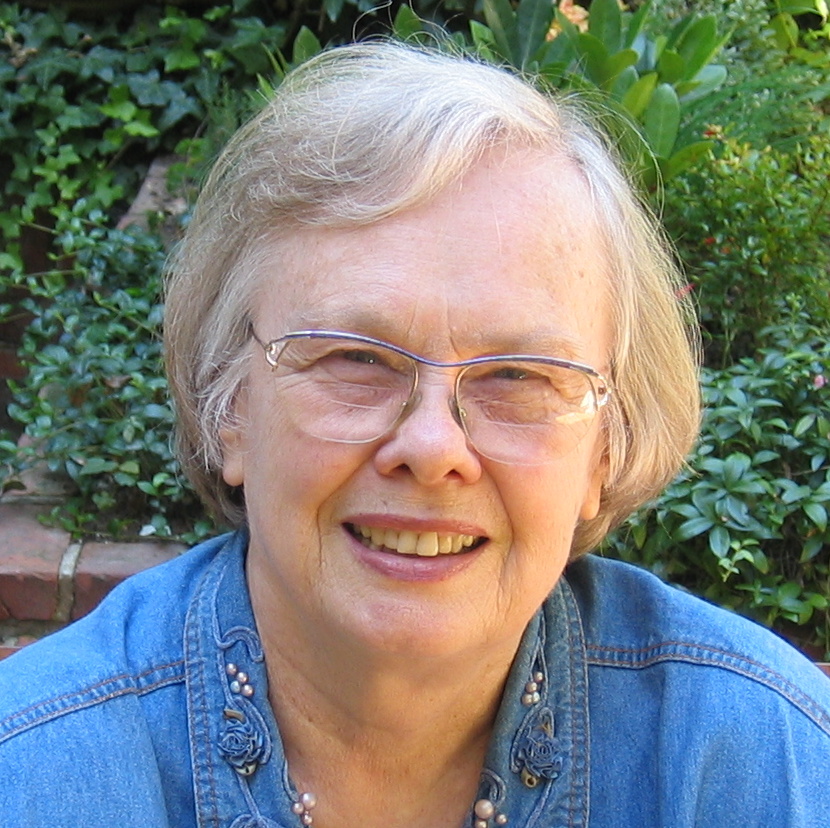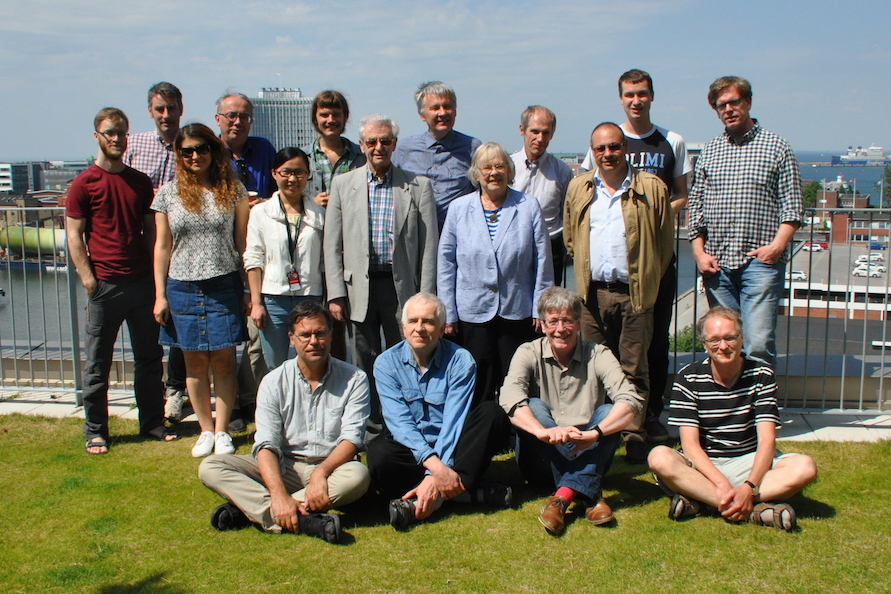
|
Charlotte Froese Fischer
Affiliate Professor, FRSC
The Department of Computer Science
University of British Columbia
Room 465, 2366 Main Mall
Vancouver, BC V6T1Z4
Canada
Telephone: (604) 822-3061 (CS office)
Fax: (604) 822-5485
Email: cff@cs.ubc.ca
|

Computational Atomic Structure Group
(CompAS, 2016)
|
|
D.Sc., University of Western Ontario, October 25, 2018.
D.Tech., Malmo University, Sweden, October 15, 2015.
Ph.D., Mathematical Laboratory, Cambridge University, 1957.
M.A., Applied Mathematics, University of British Columbia, 1954.
B.A., Honours Mathematics and Chemistry, University of British Columbia, 1952.
 Curriculum Vitae (a pdf file)
Curriculum Vitae (a pdf file)
Contents
In quantum mechanics, the solution of the wave equation for an electronic system, , determines the properties of the system. As a
computational scientist I am interested in using High-Performance Computing
methodology for the accurate solution of the wave equations for multi-electron
atoms of the periodic table. For light atoms the non-relativistic Hamiltonian
usually is adequate and the computatational challenge lies in the singularities associated with the multi-electron
nature of the problem, also referred to as the correlation in the motion of the electrons.
Correlation is less important for highly ionized atoms, but for such systems a fully relativistic
Dirac theory is needed along with Breit and quantum electrodynamic (QED) effects, as
well as the nuclear effects. Thus accurate computational methods are needed not only for the
prediction of atomic properties but in the development of atomic physics theory, particularly for superheavy elements.
, determines the properties of the system. As a
computational scientist I am interested in using High-Performance Computing
methodology for the accurate solution of the wave equations for multi-electron
atoms of the periodic table. For light atoms the non-relativistic Hamiltonian
usually is adequate and the computatational challenge lies in the singularities associated with the multi-electron
nature of the problem, also referred to as the correlation in the motion of the electrons.
Correlation is less important for highly ionized atoms, but for such systems a fully relativistic
Dirac theory is needed along with Breit and quantum electrodynamic (QED) effects, as
well as the nuclear effects. Thus accurate computational methods are needed not only for the
prediction of atomic properties but in the development of atomic physics theory, particularly for superheavy elements.
I am a founding member of the Computational Atomic Structure group --
CompAS -- that supports the development of software for the study of a wide range
of atomic properties. Of particular interest are energy levels for spectra, ionization energies, isotope effects, transition probabilities
and lifetimes.
 Recent Review (2016):
Advanced multiconfiguration methods for complex atoms:
Part I - Energies and wave functions. (with M. R. Godefroid, T. Brage, P. Jonsson, and G. Gaigalas)
Recent Review (2016):
Advanced multiconfiguration methods for complex atoms:
Part I - Energies and wave functions. (with M. R. Godefroid, T. Brage, P. Jonsson, and G. Gaigalas)
Topics of special interest:
- B-spline methods in atomic theory
- Databases for atomic energy levels and transitions
- Heavy elements such as Astatine and Uranium
 The Hartree-Fock Method For Atoms: A numerical approach
The Hartree-Fock Method For Atoms: A numerical approach
 Computational Atomic Structure An MCHF Approach (with T. Brage and P. Jonsson)
Computational Atomic Structure An MCHF Approach (with T. Brage and P. Jonsson)
 Reminiscences at the Turn of the Century (a pdf file)
Reminiscences at the Turn of the Century (a pdf file)
 Douglas Rayner Hartree: His life in science and computing
Douglas Rayner Hartree: His life in science and computing

